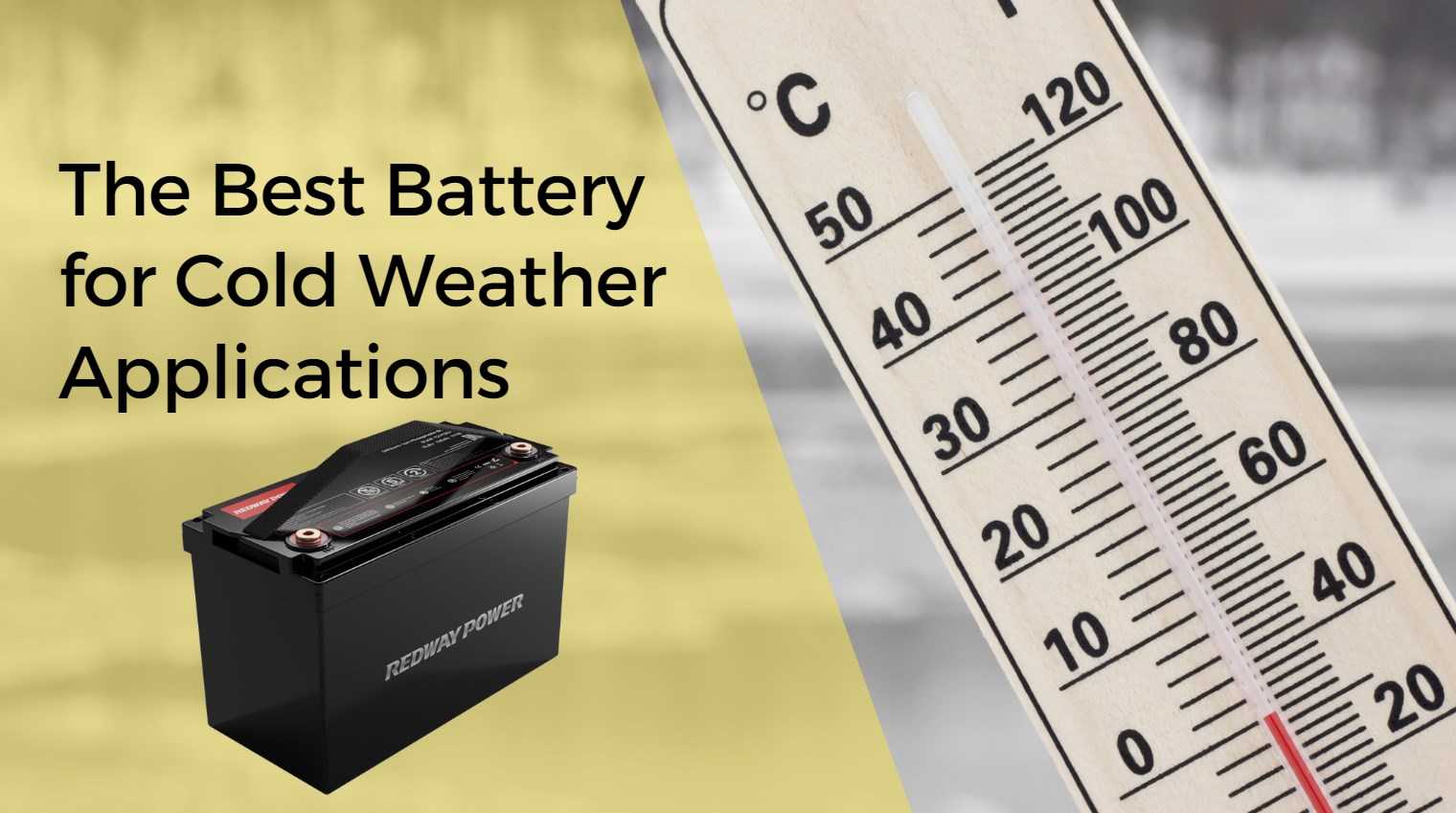Choosing the best battery for cold weather applications is crucial to ensure reliable performance and longevity, especially in harsh conditions where traditional batteries may fail. Lithium-ion, AGM, and gel batteries are among the top choices due to their resilience and efficiency.
What is the Best Battery for Cold Weather?
The best battery for cold weather applications typically includes lithium-ion, AGM (Absorbed Glass Mat), and gel batteries, as they maintain performance even at low temperatures. Lithium-ion batteries are particularly favored due to their high energy density and minimal self-discharge rates.Chart: Comparison of Top Batteries for Cold Weather
| Battery Type | Temperature Range | Key Advantages |
|---|---|---|
| Lithium-Ion | Down to -20°F (-29°C) | High energy density, low self-discharge |
| AGM | Down to 0°F (-18°C) | Good cold cranking amps, maintenance-free |
| Gel | Down to 32°F (0°C) | Safe operation, resistant to vibration |
How Does Cold Weather Affect Battery Performance?
Cold temperatures can significantly impact battery performance by slowing down chemical reactions within the battery, leading to reduced voltage output and capacity loss. This results in shorter runtimes and difficulty starting devices that rely on battery power.Chart: Effects of Temperature on Battery Performance
Wholesale lithium golf cart batteries with 10-year life? Check here.
| Temperature | Voltage Output | Capacity Loss |
|---|---|---|
| 32°F (0°C) | Normal | Minimal |
| 0°F (-18°C) | Decreased | Up to 50% reduction |
| -20°F (-29°C) | Significantly reduced | Up to 70% reduction |
What Are the Top Battery Choices for Cold Weather?
For cold weather applications, lithium-ion batteries are often preferred due to their superior performance at low temperatures, followed by AGM batteries that offer reliable power without maintenance requirements. Gel batteries also perform well but may not be as efficient as lithium-ion options.
How Does Battery Chemistry Influence Performance in Cold Conditions?
Battery chemistry plays a critical role in how well a battery performs under cold conditions. Lithium-ion batteries generally outperform lead-acid or nickel-based batteries due to their ability to maintain stable voltage levels and higher efficiency even at lower temperatures.Chart: Comparison of Different Chemistries
Want OEM lithium forklift batteries at wholesale prices? Check here.
| Chemistry | Low-Temperature Performance | Characteristics |
|---|---|---|
| Lithium-Ion | Excellent | High energy density |
| Lead-Acid | Poor | Heavier, lower efficiency |
| Nickel-Metal Hydride | Moderate | Good but less efficient than lithium |
What Are the Charging Considerations for Cold Weather Batteries?
When charging batteries in cold weather, it is essential to use chargers designed specifically for lithium or AGM technologies, as these chargers can adjust charging rates based on temperature conditions. Avoid charging when temperatures are extremely low, as this can lead to inefficient charging or damage.Chart: Charging Tips for Cold Conditions
| Practice | Description |
|---|---|
| Use Compatible Chargers | Ensures safe and efficient charging |
| Avoid Charging Below 32°F | Prevents damage and inefficiencies |
| Monitor Charge Cycles | Regularly check voltage levels during charging |
What Common Issues Arise with Batteries in Cold Weather?
Common issues with batteries in cold weather include rapid capacity loss, voltage drops leading to device malfunctions, and increased internal resistance that can cause overheating during use or charging when subjected to extreme cold.
What Are the Cost Implications of Using Different Battery Types?
While lithium batteries often have a higher upfront cost compared to traditional lead-acid options, their longevity and reduced maintenance needs frequently result in lower long-term expenses.
How Long Can You Expect a Cold Weather Battery to Last?
With proper care and regular maintenance, you can expect your cold weather battery—especially lithium-based ones—to last between five to ten years or longer depending on usage patterns and environmental conditions.
What Safety Features Should You Look For in a Cold Weather Battery?
When selecting a battery for cold weather applications, look for features such as built-in protection against overcharging, short-circuiting capabilities, and robust housing materials that prevent leaks or ruptures under extreme conditions.
Expert Views
“Choosing the right battery type is crucial not just for performance but also for safety during winter activities,” states battery technology expert Jane Doe.
LiFePO4 Lithium Battery Cold Temperature Test
FAQ Section
- What type of battery lasts longest in cold weather?
Lithium-ion batteries typically last longer due to their efficiency and lower self-discharge rates. - Can I charge my battery when it’s cold?
It’s best to avoid charging below freezing temperatures unless using specialized chargers designed for low temperatures. - How do I know if my battery is degrading?
Signs include reduced capacity, shorter runtimes, and physical damage such as swelling or leakage.






